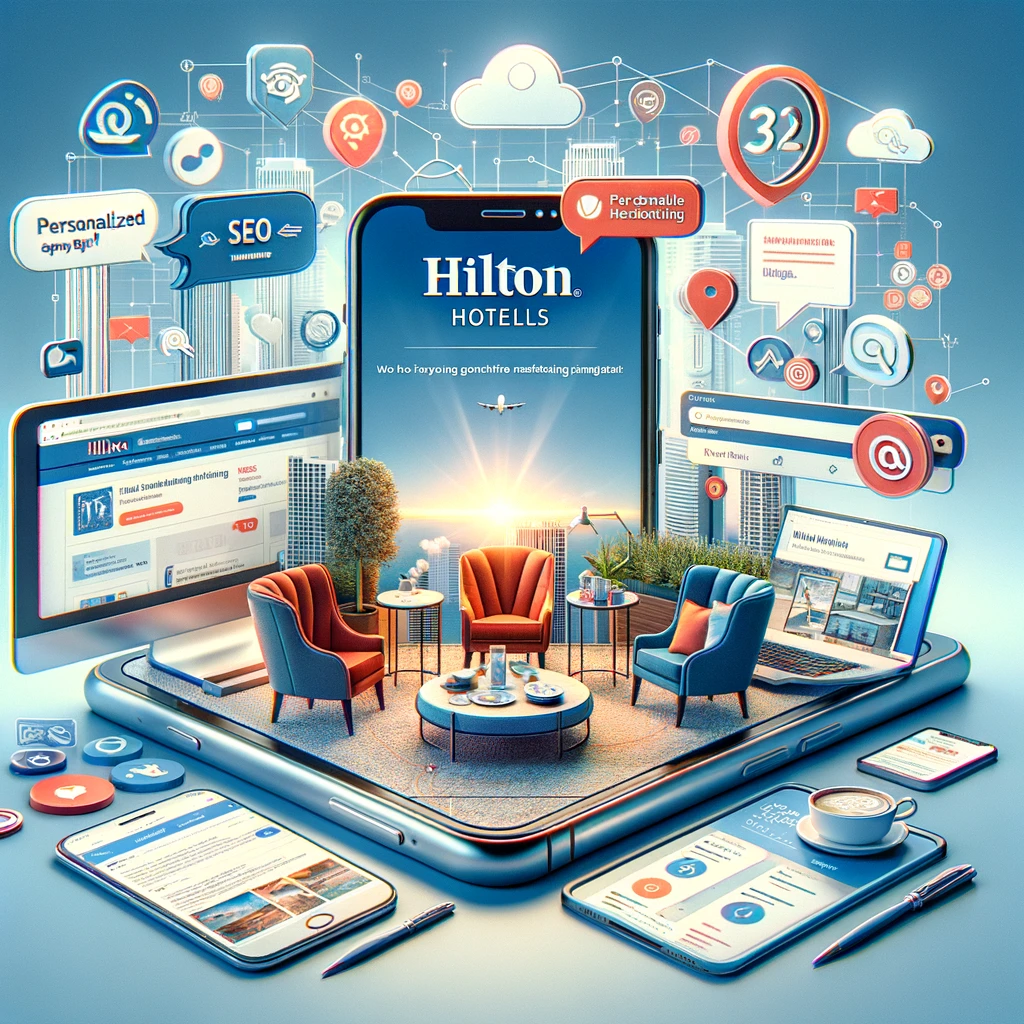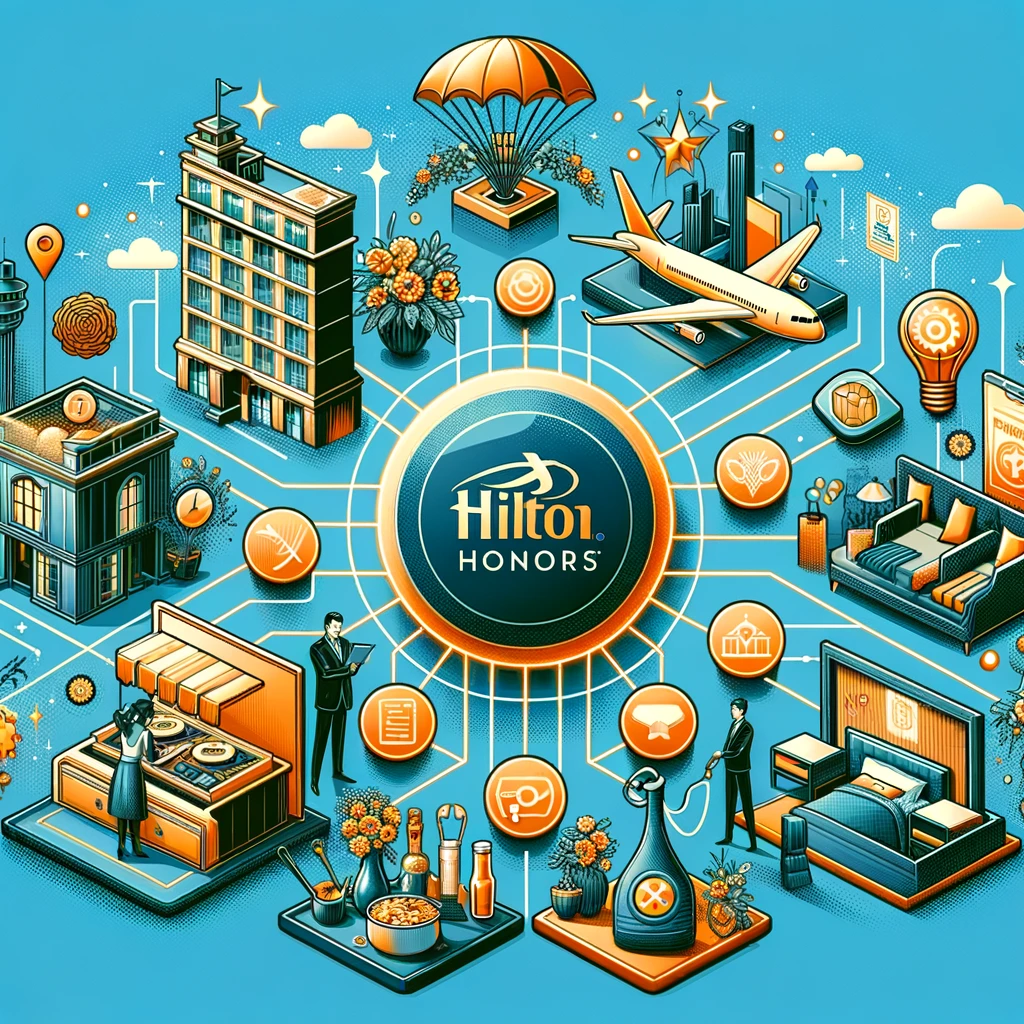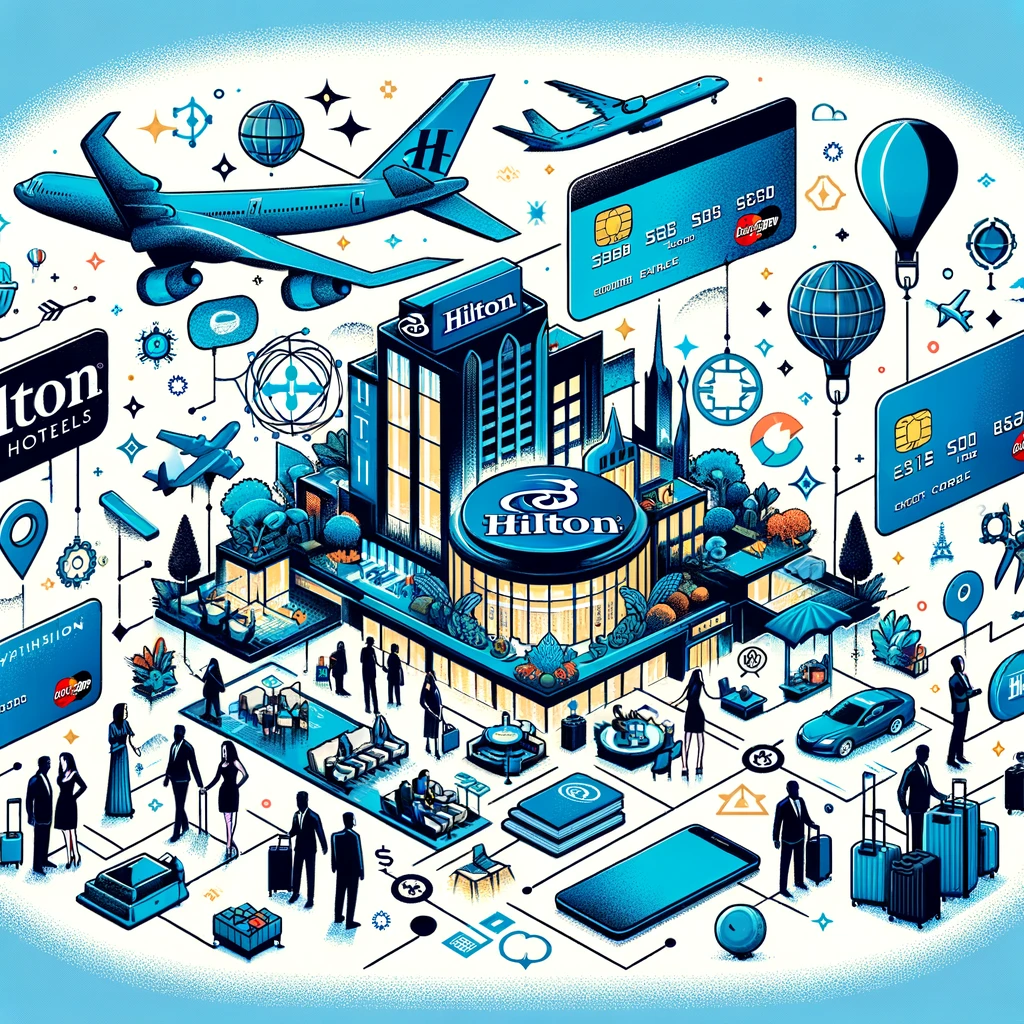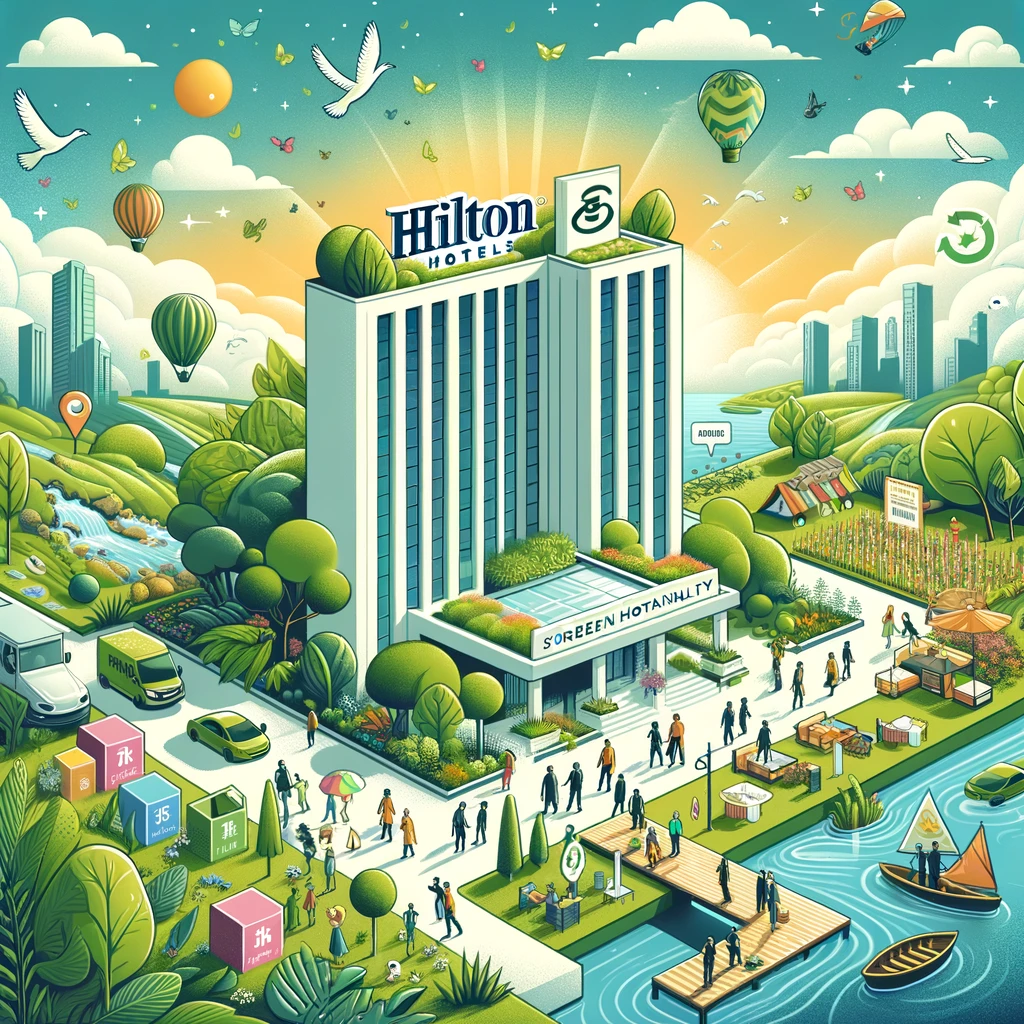In the ever-evolving world of hospitality, standing out in a sea of brands vying for consumer attention requires not just excellence, but a masterful marketing strategy. Hilton Hotels, a titan in the industry, has not only set the standard for luxury and service but has also crafted an innovative marketing approach that positions it at the forefront of global hospitality. This article delves into the core strategies that have propelled Hilton to its esteemed status, offering insights into how the brand continues to captivate and retain guests worldwide.
At the heart of Hilton’s success is a deep understanding of its audience, an unwavering commitment to innovation, and an ability to adapt to market dynamics. From its digital marketing initiatives to its loyalty programs, Hilton’s marketing strategy is a testament to the brand’s dedication to excellence. As we unpack the layers of Hilton’s marketing efforts, we’ll explore how the brand’s identity, positioning, and customer engagement tactics have made it an icon of the hospitality industry.
Whether you’re a marketing professional, a business enthusiast, or simply curious about the secrets behind Hilton’s success, this exploration will provide you with a comprehensive understanding of one of the most effective marketing strategies in the hospitality sector. Join us as we decode the blueprint of excellence that has defined Hilton Hotels’ marketing strategy.
Table of Contents
Brand Identity and Positioning
In a marketplace where consumer preferences and global trends are continuously shifting, Hilton Hotels has managed to not only survive but thrive, thanks to its robust brand identity and strategic positioning. A leader in the hospitality industry, Hilton’s brand is synonymous with quality, reliability, and innovation. This reputation is no accident but the result of a carefully crafted marketing strategy that focuses on building a strong brand identity and effectively positioning Hilton in the hospitality market.
Developing a Strong Brand Identity
Hilton’s approach to developing a strong brand identity hinges on consistency, excellence, and innovation. By ensuring that every guest experience reflects the brand’s core values, Hilton has built a reputation that guests trust. This trust is further reinforced by Hilton’s commitment to innovation, whether it’s through digital check-ins, the use of smart technology in rooms, or pioneering sustainable practices in the industry. Hilton understands that a strong brand identity is not just about logos and slogans but about the experiences and memories that guests take away with them.
Positioning Hilton in the Competitive Hospitality Market
Positioning in the competitive hospitality market requires a deep understanding of one’s audience and the ability to differentiate oneself from competitors. Hilton has mastered this by not just offering rooms but by creating unique experiences for different segments of its audience. From luxury offerings like the Waldorf Astoria for those seeking indulgence to more budget-friendly options like Hilton Garden Inn, Hilton has tailored its sub-brands to meet the diverse needs of its guests. This strategic segmentation allows Hilton to cater to a wide range of preferences and budgets, making it a preferred choice for travelers of all types.
Moreover, Hilton’s marketing strategy emphasizes its global presence while celebrating local cultures and experiences. This global-local approach ensures that while Hilton’s brand identity remains consistent worldwide, each property offers a unique experience that resonates with the local culture and preferences of its guests. This balance between global brand consistency and local relevance has been key to Hilton’s successful positioning in the market.
By focusing on a strong brand identity and strategic market positioning, Hilton Hotels has not only sustained its legacy but has also paved the way for future innovations in the hospitality industry. The brand’s ability to evolve while maintaining its core values is a testament to the effectiveness of its marketing strategy and the reason behind its enduring success.

Digital Marketing Initiatives
In the digital age, a strong online presence is crucial for any brand’s success, and Hilton Hotels has been a forerunner in adopting innovative digital marketing strategies to enhance guest experiences and engagement. By leveraging technology, Hilton has set a benchmark in the hospitality industry, proving that digital initiatives are key to reaching a wider audience and building a stronger brand connection.
Leveraging Social Media for Brand Engagement and Storytelling
Hilton Hotels’ social media strategy is a masterclass in brand engagement and storytelling. Through platforms like Instagram, Twitter, and Facebook, Hilton shares compelling content that highlights the unique experiences available at its various locations around the world. From showcasing luxurious amenities to highlighting local culture and adventures that await guests, Hilton’s social media channels serve as a digital brochure that entices travelers. Furthermore, Hilton engages with its audience through interactive posts, polls, and contests, making followers feel like a part of the Hilton family.
SEO and Content Marketing Strategies to Drive Direct Bookings
Understanding the importance of search engine visibility, Hilton employs sophisticated SEO and content marketing strategies. By optimizing website content for search engines, Hilton ensures that potential guests find their offerings at the top of search results. Their content strategy doesn’t just aim to attract traffic but to convert visitors into bookings. Through informative blog posts, destination guides, and travel tips, Hilton provides value to its audience while subtly encouraging direct bookings through its platform.
Email Marketing Campaigns for Personalized Guest Experiences
Email marketing is another cornerstone of Hilton’s digital marketing initiatives. Hilton excels in creating personalized email campaigns that resonate with each recipient. From tailored travel recommendations to exclusive offers and updates on loyalty program benefits, Hilton uses email marketing to maintain a continuous dialogue with its guests. This personalized approach not only enhances guest satisfaction but also drives loyalty and repeat business.
By embracing digital marketing, Hilton Hotels has not only expanded its reach but has also created a more engaging and personalized experience for its guests. These initiatives reflect Hilton’s commitment to innovation and its ability to adapt to the digital era, further solidifying its position as a leader in the hospitality industry.

Loyalty Programs and Customer Engagement
In the competitive landscape of the hospitality industry, fostering customer loyalty is paramount. Hilton Hotels has set a gold standard with its Hilton Honors program, a comprehensive loyalty scheme designed to reward frequent guests and deepen their engagement with the brand. This strategic initiative not only incentivizes repeat business but also personalizes the guest experience, reinforcing Hilton’s reputation as a customer-centric brand.
Overview of Hilton Honors: Benefits and Features
The Hilton Honors program stands out for its wide range of benefits and features, catering to the diverse needs of Hilton’s global clientele. From complimentary room upgrades and late check-outs to free Wi-Fi and points towards free nights, the program is tailored to enhance the guest experience at every touchpoint. Moreover, Hilton Honors members enjoy exclusive access to experiences that go beyond the hotel stay, such as concerts, culinary events, and unique travel adventures, further cementing the emotional connection between the brand and its loyal customers.
Strategies for Enhancing Customer Loyalty and Repeat Business
Hilton’s approach to enhancing customer loyalty centers around personalization and recognition. By leveraging data analytics, Hilton gains insights into individual guest preferences and behaviors, allowing for highly personalized communication and offers. This data-driven strategy ensures that Hilton Honors members receive relevant perks and promotions, making them feel valued and understood.
Furthermore, Hilton continuously innovates its loyalty program by introducing new benefits and partnerships, keeping the offering fresh and appealing. The brand’s commitment to recognizing and rewarding customer loyalty through Hilton Honors not only drives repeat business but also transforms satisfied guests into brand ambassadors.
Through the Hilton Honors program, Hilton Hotels exemplifies how loyalty schemes can be leveraged to foster long-term customer relationships, enhance engagement, and drive business growth. This strategic focus on loyalty and customer engagement is a key pillar of Hilton’s enduring success in the hospitality market.

Innovative Partnerships and Collaborations
In today’s interconnected world, strategic partnerships and collaborations are invaluable for brands looking to expand their reach and offer more comprehensive services. Hilton Hotels has been at the forefront of forging innovative partnerships, enhancing its marketing strategy, and providing guests with unparalleled experiences.
Collaborations with Travel Agencies and Airlines
Hilton has cultivated strong relationships with travel agencies and airlines to offer seamless travel experiences. These collaborations often result in exclusive packages, combining flights, accommodations, and sometimes even unique experiences, making it easier for travelers to plan their trips. By partnering with leading airlines, Hilton can tap into a wider customer base, offering special rates and rewards points for bookings made through these partners, thereby incentivizing customers to choose Hilton over competitors.
Leveraging Partnerships for Co-Branded Marketing Initiatives
Beyond travel packages, Hilton’s partnerships extend into co-branded marketing initiatives that amplify its brand message across various platforms. One notable example is its co-branded credit cards, which offer users points for spending, redeemable for free nights, upgrades, and other perks at Hilton properties. These cards not only foster loyalty but also serve as a constant brand reminder to consumers, encouraging them to prefer Hilton for their accommodation needs.
Moreover, Hilton engages in partnerships with local and international events, providing exclusive access or offers to Hilton Honors members. These collaborations not only enhance the brand’s visibility but also associate Hilton with high-profile events and lifestyle experiences, further elevating its position in the hospitality industry.
Through innovative partnerships and collaborations, Hilton Hotels has broadened its marketing reach, creating a more dynamic and engaging brand presence. These strategic alliances not only benefit Hilton and its partners but also offer significant value to customers, making Hilton a top-of-mind choice for travelers around the world.

Sustainability and Social Responsibility in Marketing
In an era where consumers increasingly favor brands that contribute positively to society and the environment, Hilton Hotels has taken significant strides in integrating sustainability and social responsibility into its core business strategy. This commitment is not only evident in Hilton’s operations but also plays a crucial role in its marketing narrative, reinforcing the brand’s image as a leader in ethical and sustainable hospitality.
Integrating Sustainability into Hilton’s Brand Messaging
Hilton’s dedication to sustainability is communicated through its “Travel with Purpose” initiative, which aims to redefine sustainable travel. The brand’s marketing materials frequently highlight its efforts to reduce carbon emissions, water usage, and waste across all properties. By showcasing these initiatives, Hilton not only informs guests of its environmental efforts but also encourages them to participate in these practices during their stays. This approach not only enhances Hilton’s brand reputation but also aligns with the values of eco-conscious travelers.
Social Responsibility Campaigns and Their Impact on Brand Perception
Beyond environmental sustainability, Hilton’s social responsibility campaigns focus on community support, disaster relief efforts, and promoting diversity and inclusion. These campaigns are prominently featured in Hilton’s marketing, illustrating the brand’s commitment to making a positive impact beyond its hotels. For example, Hilton’s partnerships with local communities and NGOs for educational and economic development projects are highlighted in its communications, resonating with guests who value social responsibility.
These efforts have significantly impacted Hilton’s brand perception, positioning it as a responsible and caring brand in the eyes of consumers. By integrating sustainability and social responsibility into its marketing, Hilton not only demonstrates leadership in these areas but also builds deeper connections with its guests, who are increasingly looking for brands that reflect their personal values and concerns.
Through its commitment to sustainability and social responsibility, Hilton Hotels exemplifies how brands can effectively incorporate ethical practices into their marketing strategies, resulting in a positive brand image and a loyal customer base.

Conclusion
Throughout this article, we’ve journeyed through the multifaceted marketing strategy that has positioned Hilton Hotels as a leader in the global hospitality industry. From its meticulous development of a strong brand identity to its innovative digital marketing initiatives, Hilton has demonstrated a profound understanding of the importance of evolving with the times while staying true to its core values.
Hilton’s loyalty programs and customer engagement strategies showcase a brand deeply committed to recognizing and rewarding its guests, reinforcing the value of personal connections in building brand loyalty. Meanwhile, the strategic partnerships and collaborations Hilton has forged serve to expand its reach and enhance the guest experience, illustrating the power of synergy in the hospitality sector.
Perhaps most impressively, Hilton’s commitment to sustainability and social responsibility reflects a brand that does not merely aspire to lead in the hospitality industry but also to make a positive impact on the world. Through its “Travel with Purpose” initiative and various community-focused campaigns, Hilton has set a standard for corporate responsibility that both inspires and challenges others in the sector.
As we decode the blueprint of Hilton’s marketing excellence, it becomes clear that the brand’s success is not just the result of effective marketing tactics but a testament to its vision, innovation, and unwavering commitment to excellence. Hilton Hotels continues to inspire, innovate, and lead by example, proving that a well-executed marketing strategy can indeed turn a brand into a legacy.
In a world that’s constantly changing, Hilton’s ability to adapt, innovate, and remain committed to its values offers valuable lessons for brands aiming to achieve enduring success. As we look to the future, it’s evident that Hilton Hotels will continue to set benchmarks, not just in hospitality, but in the broader landscape of global brand strategy.









